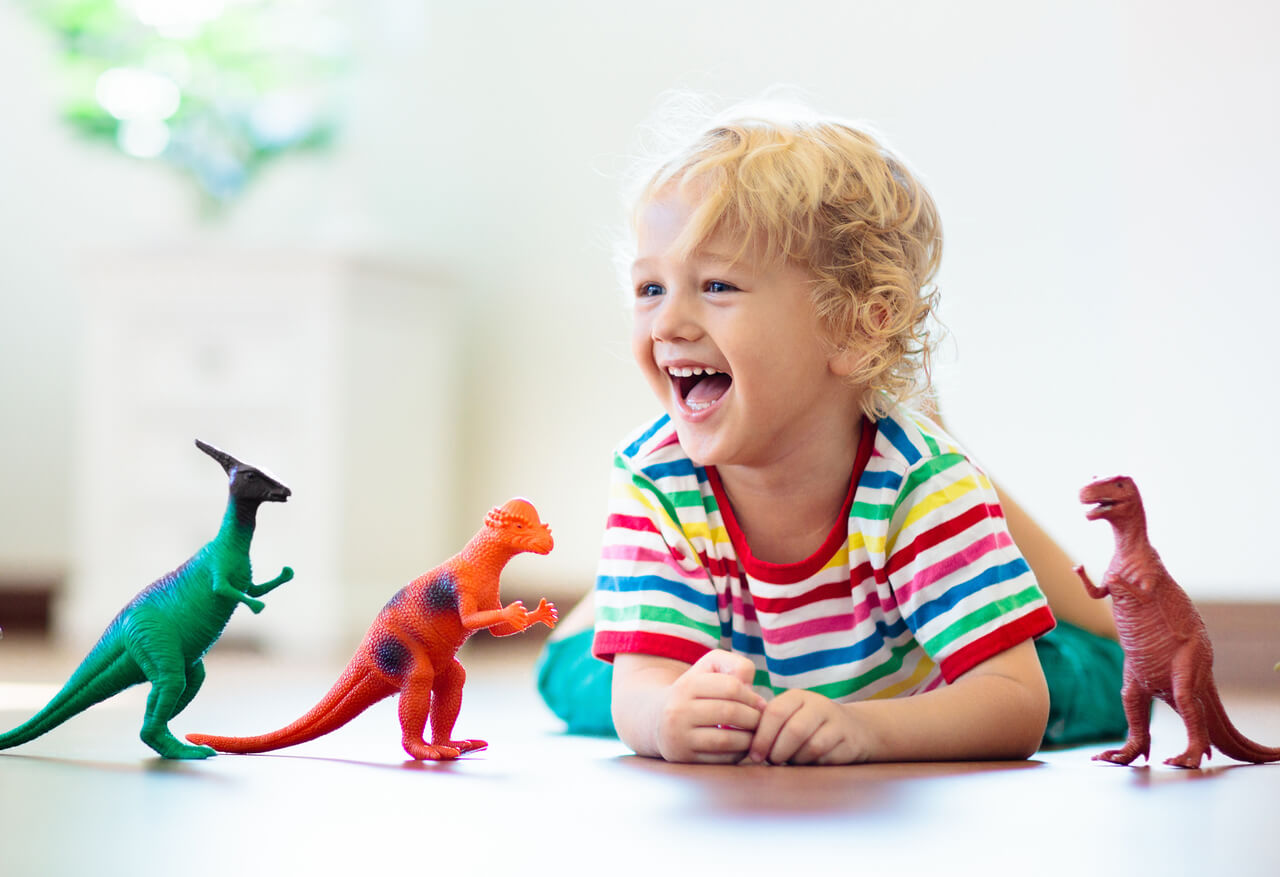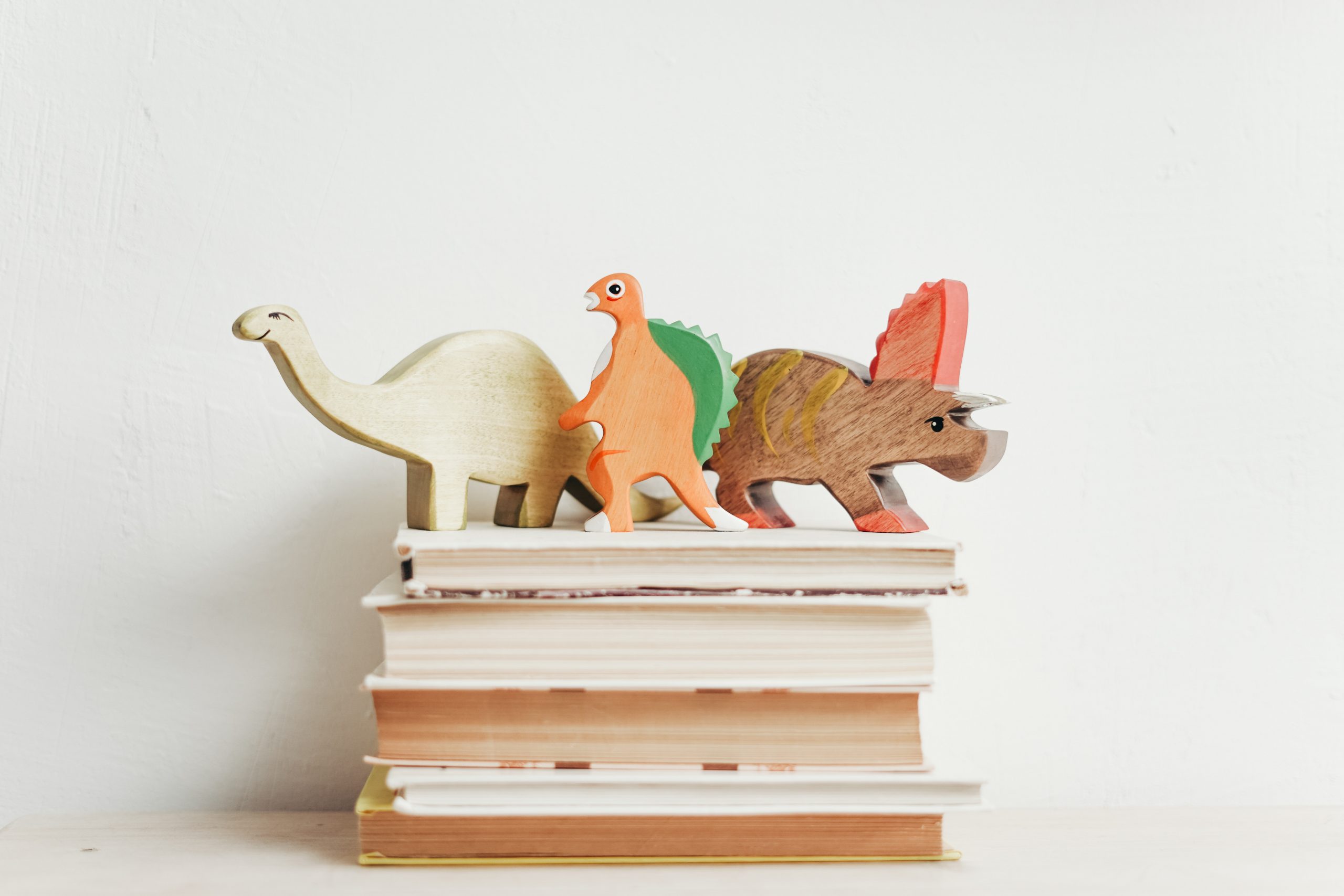 I used to wonder what makes little boys develop a love for tough toys such as cars and dinosaurs.
I used to wonder what makes little boys develop a love for tough toys such as cars and dinosaurs.
In fact, it may be something more than love as once they get interested in these toys, their knowledge of all the different variants or species will surely amaze you.
For example, a dinosaur is not just called a dino, but there are T-Rex, Triceratops and Stegosaurus.
According to a 2007 study published in the Journal of Developmental Research, it was found that one in three young children will develop an “intense interest” towards certain things at some point. Some leading examples that are hugely popular with preschoolers include any kind of motorised vehicle, and this is closely followed by dinosaurs.
What Your Kids’ Love for Dinosaurs Tells You
The study suggests that a child’s level of interest towards a particular topic or item can lead to substantial developmental benefits. This includes greater perseverance, improved attention span and an enhanced ability for higher-order thinking, which affects the way he/she processes new information.
It has also been shown that the way children study dinosaurs intently leads to higher levels of understanding that surpass their age. We all know that this is a valuable skill to have early on in life as it helps them develop strategies to solve problems throughout their lives in a more skilful way.
The Link Between Dinosaurs and Intelligence
Like me at first, you might be wondering how do kids get to develop all these skills merely through their fascination with dinosaurs?
Well, that’s because to really study and understand everything there is to know about these pre-historic stars, your little ones will not just be taking in the facts passively. Instead, a lot of thinking, wondering, asking questions and book reading are involved in order to help them understand their dino heroes.
Kelli Chen, a paediatric psychiatric occupational therapist at John Hopkins, tells CNN that when it is greatly beneficial when kids explore a topic and go to great lengths to master it, as that sets the path for them to form careers as adults.
“A kid’s primary occupation is to play, so they’re going about their job of playing through the lens of this [thing] that they’re interested in learning about,” she explains.
The Developmental Research report also found that kids tend to change their topics of interest within six months to three years, but the stand on their fascination with specific topics and their level of intelligence still stands.
Read also: 16 Types of Play for Children That Are Great For Their Development
How to Nurture Your Child’s Curiosity

While you don’t have to deliberately introduce dinosaurs to your little ones in the hopes of nurturing their intelligence, there is much you can do to pique their curiosity and creating learning moments in your everyday life.
Studies have shown that curiosity is something all babies are born with and they come into the world with a strong desire to understand how things around them work. As they grow up, here are some things you can do to keep this love for learning alive:
1. Take Your Child’s Lead
It is a fact that kids learn so much more through activities that capture their attention and imagination. So do all you can to encourage your child’s natural interests.
If he/she is into music, play his/her favourite tunes often, dance and play instruments together.
If he is fascinated with planes, take that trip to the airport to watch planes land and take off. You can also read books on planes or vehicles to feed his interest and introduce new things to him.
2. Ask Open-Ended Questions
These are questions that do not come with a right or wrong answer, and no, there’s no way your child can answer the, with a “yes” or “no”.
Some examples to get started are, “How do you think he/she felt when…” or “Tell me one good thing that happened to you in school today.”
Questions such as these encourage your child to develop his/her thoughts and ideas, shows love and interest and gives you an idea of what he/she is thinking at that very moment.
3. Make Your Living Space Interesting!
From his/her first year, your child spends one-fifth of his/her waking hours gazing at things around him/her. Babies and young children are curious about their surroundings, and they find photos on the wall and everyday activities at home strangely fascinating.
So give your child toys and objects that he/she can safely explore. You can prepare boxes of sensory toys and rotate them to make way for new experiences and keep your child anticipating.
4. Redirect, Rather Than Avoid
Observe your child’s interests and the skills that he/she is trying to learn. Then create a safe environment for him/her to explore.
For example, if your toddling little one is into throwing things from the high chair or pouring water from his/her cup to the floor, prepare a tub or put him/her in the playpen so that he/she can explore without tiring you out.
In a way, this encourages your child to problem-solve and tap on his/her creativity to figure out what he/she wants to find out.
5. Create Opportunities for Open-Ended Activities
Let your child take a break from his/her collection of toys and go back to basics with materials like boxes, pots and pans and art supplies.
There is no need for you to set any rules or instructions on what to do with the materials or what your child could create out of them. Encourage him/her to use his/her imagination and creativity to produce something truly original and unique.
Read also: 4 Sensory Play Activities for Toddlers and Preschoolers
Encouraging curiosity in young children may not be the easiest thing to do, but it can be so rewarding for your child’s development and future success. So, let’s do all we can to ensure that our young ones never lose their sense of curiosity – because life never stops teaching!























